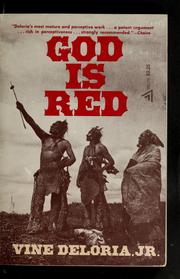
As a young Shawnee, Lenape person trying to gain a better understanding of history, I first learned about the doctrine of discovery when I was living in Southern California. I decided to read Vine Deloria’s book God is Red when it was published in 1972. I was nineteen or twenty years years old when I read the book. In a chapter titled, “The Aboriginal World and Christian History,” Deloria very accurately states: “The reaction of the Christian nations to the discovery of the New World and its potential riches was one of unmitigated greed.” Later he wrote: “The Christian church was also eager to exploit the new lands.” He said that the church’s “political power began to wane with the rise of strong European political leaders.” As he put it, “the Christian church saw a means of directing the invasion of the new lands by placing its imprimatur on [approval of] exploitation, in effect taking a percentage of the loot in return for blessing the enterprise.” Deloria continued: “In 1493 Pope Alexander VI issued his Inter Caetera bull, which laid down the the basic Christian attitude toward the New World: ‘Among other works well pleasing to the Divine Majesty [“God”] and cherished of our heart, this assuredly ranks highest that in our times especially the Catholic faith and Christian religion be exalted and everywhere increased and spread, that the health of souls be cared for and that barbarous nations be overthrown and brought to the faith itself.”
“In 1493 Pope Alexander VI issued his Inter Caetera bull, which laid down the the basic Christian attitude toward the New World: ‘Among other works well pleasing to the Divine Majesty [“God”] and cherished of our heart, this assuredly ranks highest that in our times especially the Catholic faith and Christian religion be exalted and everywhere increased and spread, that the health of souls be cared for and that barbarous nations be overthrown and brought to the faith itself.”
Deloria further said: “What this pious language meant in practical terms was that if [invasion and] confiscation of lands were couched in quasi-religious sentiments, the nations of Europe could proceed. In an immensely practical gesture the pope noted that he did thereby ‘give, grant, and assign forever to you and your heirs and successors, kings of Castile and Leon, all singular the aforesaid countries and islands . . .hitherto discovered . . .and to be discovered . . .together with all their dominions, cities, camps, places, and villages, and all rights, jurisdictions, and appurtenances of the same.'” Deloria then sensibly pointed out: “The lands and villages were not, of course, the pope’s to give. . .”
During my first decade of research into this history I investigated the Latin and English versions of the Vatican papal bulls. (How I located those documents, and managed to do this research without any grasp of Latin when I began, is a story for another time).
The Vatican documents are typically called “bulls” because a lead ball was used to seal each one, and the Latin word for ball is “bulla.” After that decade of research, I had realized that what has been typically called “the Doctrine of Discovery” is more accurately called the Doctrine of Christian Discovery. This “doctrine” was the idea developed during the fifteenth century, that the first Christian nation or people to locate a non-Christian geographical region purported to give themselves a “God-given right” to establish a system of domination over the non-Christians living there, and a “God-given” right to claim a right of domination over those non-Christian lands and territories.
Vine Deloria, Jr. was an eminent Dakota/Nakota lawyer, theologian, author and activist. If it weren’t for his cutting edge research and writing all those decades ago, I know that I wouldn’t have managed to do the research and writing that I’ve done. We as Native people owe him a huge debt of gratitude. At the same time, however, it is important to regard Deloria’s work as a tentative starting point, and not as an ending point.
For example, my more than thirty years of research I have a different interpretation than Deloria on a key point. Later in the chapter mentioned above, he writes: “The doctrine that the pope had been given total control over the planet by God was soon secularized [italics added] into justification for European nations, definitively Christian, to conquer and subdue [dominate] the peoples of the lands that they entered.” “Once the doctrine became secularized,” says Deloria, it became impossible for anyone to question its validity.
By “secularized,” Perhaps Deloria meant that the doctrine began to be expressed in terms of non-religious language, by using the word “European” instead of the word “Christian.” What began as a theory that was expressed as Christians claiming the lands of non-Christian “heathens and infidels,” ended up being expressed without religious vocabulary. It became expressed as “the European doctrine of discovery” instead of “the doctrine of Christian discovery,” or what Deloria at one point called “the Christian doctrine of discovery.” Personally, I don’t believe that the doctrine itself became…
For the conclusion of that last sentence, please read my next entry.
(Steven Newcomb, September 30, 2018)
Lenape: Milinèn weltëk tëmakàn tìlìch kàski ikalìchEnglish: Give us a good road so that we can continue.
Thanks to Jim Rementer and the Lenape Talking Dictionary.
